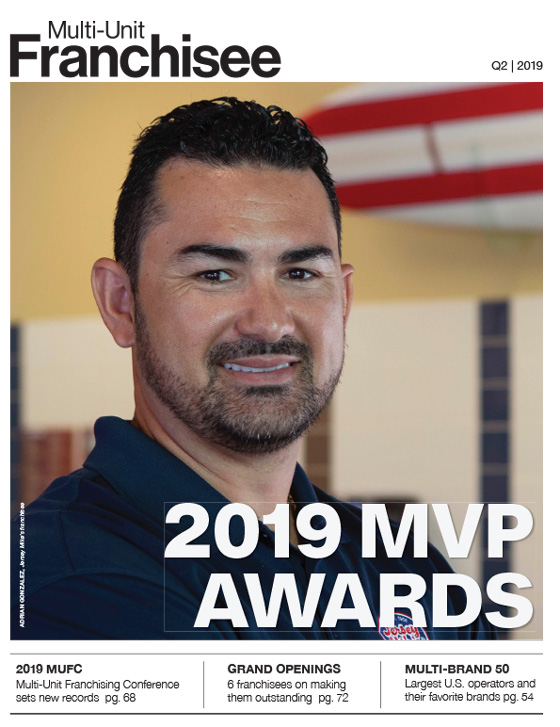Territory Redux? Delayed Disclosure Harms Buyers and Sellers

In franchising, disclosure is required. Franchisors provide prospective franchisees with an annually updated Franchise Disclosure Document (FDD), which gives them information regarding history, lawsuits, management, financial performance, etc. However, there are other areas where franchisors are not as forthright.
Resale territory reduction
It is a practice among mature franchisors to reduce the territory of a franchisee who is selling. This is done in a variety of ways, based on how territories are created by the network. These include reducing the number of ZIP codes in a protected territory, reducing the number of counties the franchisee can serve, reducing the number of businesses included in a protected territory, or any other method that specifically relates to how territories are allocated.
This practice allows the mature franchisor to continue creating new territories to sell to new franchisees, as well as continuing to resell old territories. At one conference I attended, the running joke was about a franchisor that sells about 40 new territories a year, year after year, and always has about 400 to sell as a result of resale territory reduction.
The challenge for a new franchisee buying a resale is when this reduced territory information is disclosed in the purchasing process.
In some networks, disclosure of the reduced territory is delayed and not provided until the buyer signs the franchise agreement and assumes ownership of their new business. Unfortunately, the buyer had not received this information before preparing their financial projections and seeking financing for their new business. So the new franchisee prepares a loan proposal based on financial statements, typically from the past 3 years based on the old territory. However, the old territory was larger than the new one the franchisee is acquiring--invalidating the financial information used to make the loan proposal for the new business.
Effect on the seller
The price you've established for your company usually is based on a multiple of your EBITDA for the past 3 years, based on the same--now invalid--financials. If you are considering selling, dig out your franchise agreement and look for the clause, typically in the back, that gives your franchisor the right to reduce your territory at resale. You probably didn't notice or think about it when you were signing up, but it could be an issue going forward with your selling plans.
Effect on the lender
If you are a lender financing resale transactions, compare the description of the old territory with the description of the new territory being acquired to check that they are the same. If they are not, confirm that information with the new franchisee and review the loan package to be sure that the territory being acquired will actually create the financial results reflected in the historic financial statements. If you made a loan to a new resale franchisee and that business is inexplicably struggling, check the old and new territory maps as part of your special credits review.
Seller financing issues
If you are a multi-unit owner planning to sell and in the position of becoming part of the financing package by carrying back a note, it is critically important that you understand any changes in the territory your new owner is acquiring. You built your success on the territory you serve. If that territory is to be changed and reduced, your new owner will have a greater challenge. It is in your best interest to know as soon as possible in the proposed sale if your franchisor is planning a territory reduction as part of the transaction.
One red flag in the process is if your franchisor requires you to not discuss your territory with any new owner prospect. Typically, this will mean that a territory reduction is planned and that your franchisor will control the timing of the disclosure. If this occurs, be proactive with your franchisor to learn of their intentions regarding a territory reduction and, more important, when they intend to disclose that reduction to prospective buyers. If that disclosure comes after financing is secured and you are carrying a note to help finance the deal, you could be in trouble.
Rod Bristol is the director of business development and a presenter at Profit Soup, a financial education organization specializing in franchised companies. He can be reached at [email protected] or at 206-427-5333.
Share this Feature
Recommended Reading:
FRANCHISE TOPICS
- Multi-Unit Franchising
- Get Started in Franchising
- Franchise Growth
- Franchise Operations
- Open New Units
- Franchise Leadership
- Franchise Marketing
- Technology
- Franchise Law
- Franchise Awards
- Franchise Rankings
- Franchise Trends
- Franchise Development
- Featured Franchise Stories
FEATURED IN

Multi-Unit Franchisee Magazine: Issue 2, 2019

$750,000





 The multi-unit franchise opportunities listed above are not related to or endorsed by Multi-Unit Franchisee or Franchise Update Media Group. We are not engaged in, supporting, or endorsing any specific franchise, business opportunity, company or individual. No statement in this site is to be construed as a recommendation. We encourage prospective franchise buyers to perform extensive due diligence when considering a franchise opportunity.
The multi-unit franchise opportunities listed above are not related to or endorsed by Multi-Unit Franchisee or Franchise Update Media Group. We are not engaged in, supporting, or endorsing any specific franchise, business opportunity, company or individual. No statement in this site is to be construed as a recommendation. We encourage prospective franchise buyers to perform extensive due diligence when considering a franchise opportunity.